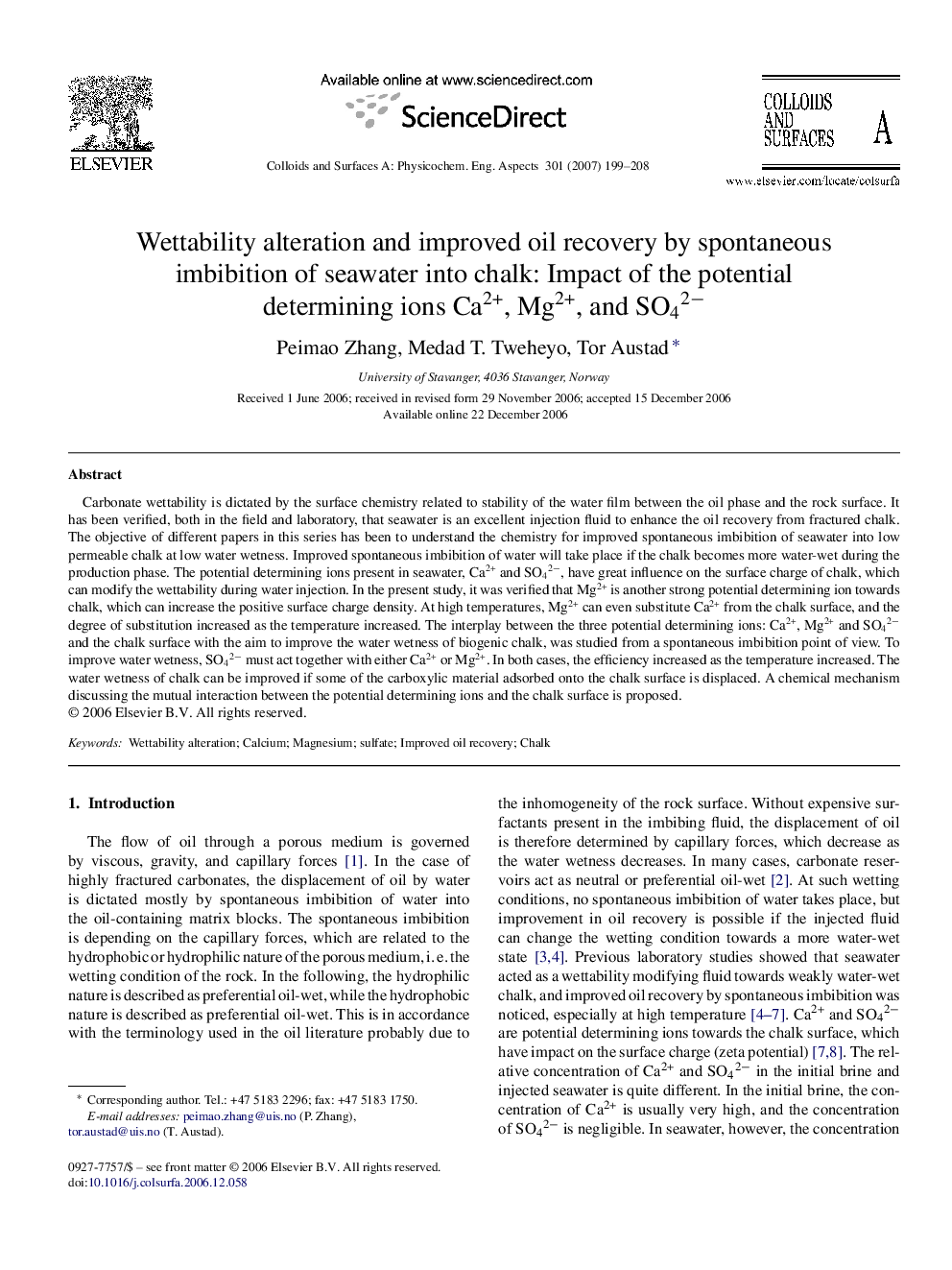| Article ID | Journal | Published Year | Pages | File Type |
|---|---|---|---|---|
| 597545 | Colloids and Surfaces A: Physicochemical and Engineering Aspects | 2007 | 10 Pages |
Carbonate wettability is dictated by the surface chemistry related to stability of the water film between the oil phase and the rock surface. It has been verified, both in the field and laboratory, that seawater is an excellent injection fluid to enhance the oil recovery from fractured chalk. The objective of different papers in this series has been to understand the chemistry for improved spontaneous imbibition of seawater into low permeable chalk at low water wetness. Improved spontaneous imbibition of water will take place if the chalk becomes more water-wet during the production phase. The potential determining ions present in seawater, Ca2+ and SO42−, have great influence on the surface charge of chalk, which can modify the wettability during water injection. In the present study, it was verified that Mg2+ is another strong potential determining ion towards chalk, which can increase the positive surface charge density. At high temperatures, Mg2+ can even substitute Ca2+ from the chalk surface, and the degree of substitution increased as the temperature increased. The interplay between the three potential determining ions: Ca2+, Mg2+ and SO42− and the chalk surface with the aim to improve the water wetness of biogenic chalk, was studied from a spontaneous imbibition point of view. To improve water wetness, SO42− must act together with either Ca2+ or Mg2+. In both cases, the efficiency increased as the temperature increased. The water wetness of chalk can be improved if some of the carboxylic material adsorbed onto the chalk surface is displaced. A chemical mechanism discussing the mutual interaction between the potential determining ions and the chalk surface is proposed.
